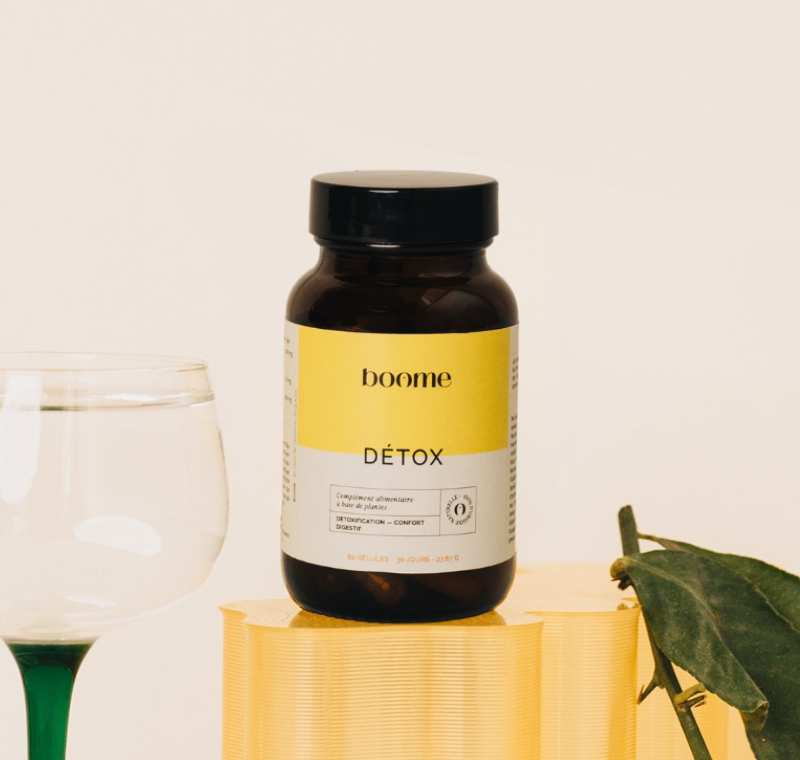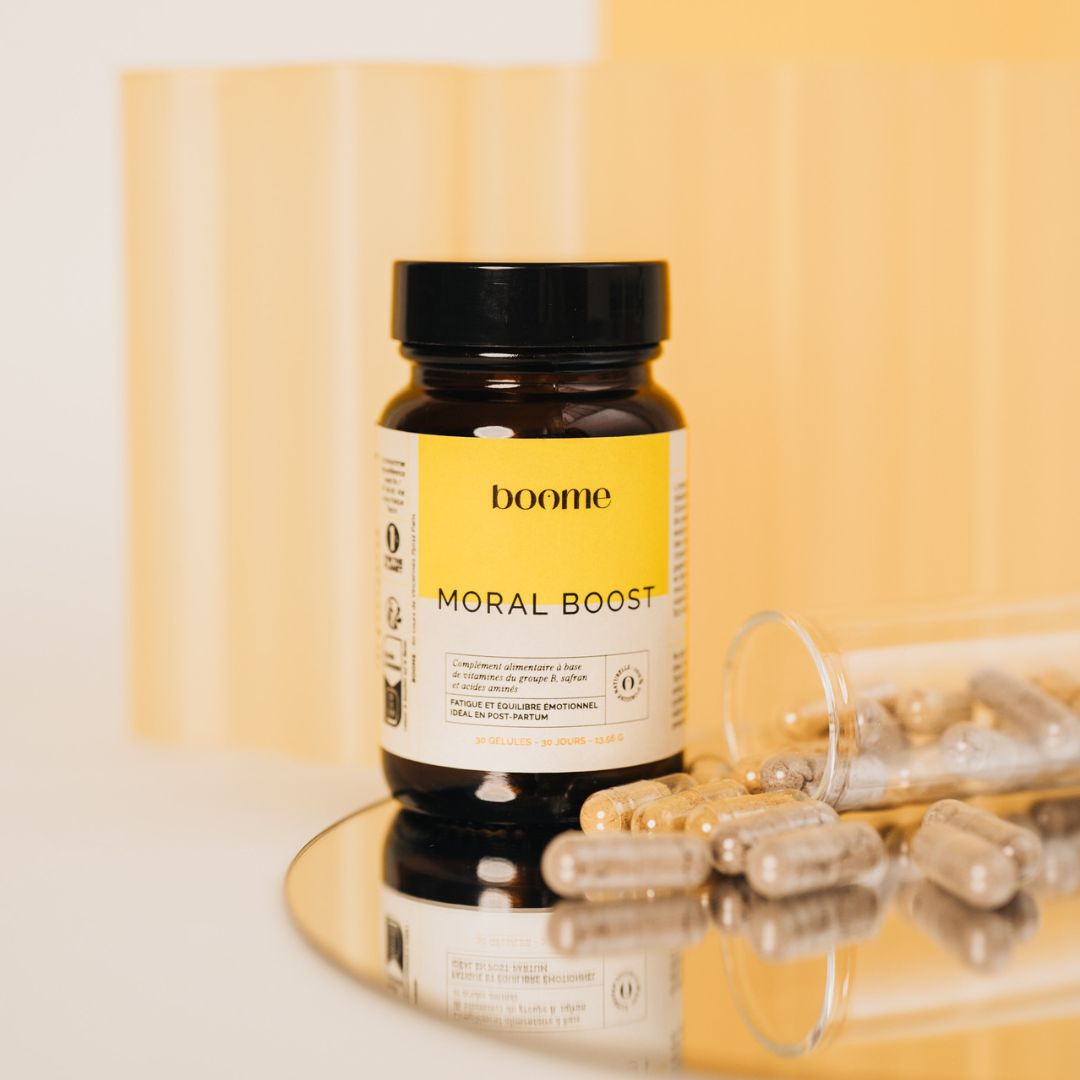
“Do I really need a prenatal vitamin?” This is a question that we can legitimately ask ourselves during pregnancy or pre-pregnancy.
Our mothers or grandmothers often told us that in their time, "we didn't take anything" and "that a varied and balanced diet is enough" for the mother-to-be to benefit from all the nutrients she needs for herself. and the development of her fetus.
So why do we need them today, when they weren't necessary in our grandmothers' time?
Spoiler: our food system has evolved a lot and these changes have had numerous impacts on our health and the intakes that we now need to grow a baby and keep a mother in good health.
Here's a quick recap of what's changed and why:
Less fresh, out of season or less rich products
At the time, our grandparents did not eat fruit flown in out of season. They ate fresh fruit from their garden right after it was harvested. They also froze and canned produce at the peak of its freshness for year-round enjoyment.Why is this important? Because foods picked and eaten at the peak of their freshness are richer in nutrients than those that are not yet ripe. We know today that fruits and vegetables transported by plane or truck are harvested too early to better withstand transport, which is often done in poor conditions (in plastic, most often in pallets).
Furthermore, several decades ago, nothing was wasted and animals were often eaten whole. For example, chicken was cooked on a spit and eaten with the skin and offal such as liver. The bones were made into broth and used in soups and stews. This type of diet was extremely rich in nutrients and good elements like collagen and gelatin, which are good for both our skin and our intestines.
Even when we try to “consume local”, agricultural practices make it difficult for us. Indeed, in recent decades, this sector has become highly industrialized (industrial chemicals, etc.) and this has severely disrupted the quality of the soil and the nutritional quality of the foods that grow there.The University of Texas published a study in December 2004 on the nutritional data of 43 different fruits and vegetables between 1950 and 1999 . This study demonstrated a decline in nutritional content (protein content, calcium, phosphorus, iron, riboflavin (vitamin B2) and vitamin C) over the period studied. This “reliable decline” is caused by agricultural practices aimed at improving traits (size, growth rate, pest resistance) other than nutrition.
In other words, you could eat the same diet - the same foods in the same quantities - as your grandmother, and you would get fewer nutrients. This is why, in addition to taking your prenatal vitamins at all stages of pregnancy (before, during and after childbirth), it is good, whenever possible, to source locally from farmers who practice regenerative and sustainable agriculture.The explosion of endocrine disruptors and other environmental pollutants
The subject of endocrine disruptors has become a real scourge for our modern societies. We have become very attentive to the labels of different consumer products, whether food or home, to make the cleanest choices possible. But cosmetics, cleaning products or even water bottles, it is almost impossible to escape. However, it has been scientifically proven that these endocrine disruptors have an impact on all the major functions of living organisms, whether on growth, reproduction or even the immune system.
More generally, the national biomonitoring program, implemented by Public Health France, carried out a study published in 2017 , which demonstrates that " the majority of pollutants studied are present in almost all pregnant women, and that diet represents the main source of exposure , despite the existence of other sources, particularly in indoor and outdoor air. " If the concentration of certain pollutants, such as lead or Bisphenol A, are generally lower than those observed in previous French studies due to their recent bans, other pollutants like mercury are still very present.
Furthermore, despite their undeniable benefits, certain modern inventions in the field of health, such as hormonal contraceptives or even antibiotics, unbalance our intestinal flora or weaken our immune systems.
Foods too clean
Faced with these pollutants, our legitimate reflex is to clean as much as possible what we consume. But by doing this, we are not only removing dirt or pollutants, we are also removing the good bacteria that the earth provides us. This is where our grandparents got most of their probiotics, long before they were put into capsules in bottles. Due to the mass cultivation and processing of products that takes place today, our food ends up being (too) clean and we are very far from the earth and its small organisms that can help populate our own microbiomes .
Note also that fermentation, once widely practiced as a means of preserving food, is experiencing renewed interest and we are happy about it! The bacteria that resulted naturally were (and still are) great for the gut.
Better scientific knowledge
In the 1970s, first studies established a correlation between folic acid and fetal development. Doctors then recommend adding folic acid to foods and vitamins (and we now know that it is better to favor folate rather than folic acid ).
The subject of prenatal vitamins then began to gain momentum and marked the beginning of many other studies, which shed light on the needs necessary for the baby to develop correctly.
Since then, we've learned a lot about nutrients needed for pregnancy that hadn't previously received much attention. Choline, for example, helps reduce the risk of neural tube defects and preeclampsia, while iodine is essential for the proper development of the brain of the fetus and young child.
The world is very different than it was several generations ago. We know more about the nutrients we need, but paradoxically, it is more difficult for us to find them in foods that are easily accessible to us. A varied and balanced diet alone is no longer sufficient during the stages of your pregnancy.
So we bet our grandmothers would have taken their prenatal vitamins if they had existed back then!









